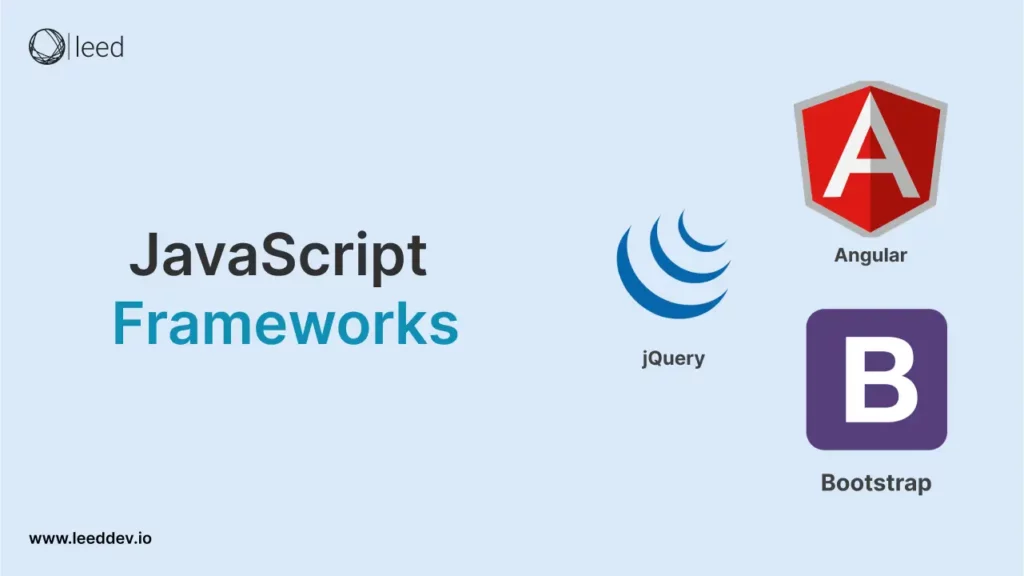Who doesn’t know about online shopping? In today’s digital world online shopping has become a norm. If we talk about the popularity of e-commerce then it has been increasing rapidly for about a decade. And it is expected that the online shopping trend will continue to grow in the future. Also, the online shopping trend got a major boost in the COVID. During COVID online shopping was the safest way to shop from home with peace of mind.
But we can’t deny the reality that about 8 out of 10 stores fail within 24 months. So before you start your business you need to consider questions like How to grow an online marketplace? In addition, what are the best ecommerce platforms for creating online ecommerce stores in 2025? Let’s have a look at the answers of these questions and how to develop an ecommerce website.
What Is An Ecommerce Store?
An ecommerce store is the electronically buying and selling of goods over the internet. You can utilize diverse channels such as your own website, established platforms like Amazon, or social media to boost online sales. What’s more, an Ecommerce Store is basically a virtual market to buy and sell things.
Ecommerce Website Development
Follow the given steps for Ecommerce Website Development:
Identify Your Target Market
- Conduct audience research to know about buyer needs.
- In addition, analyze age group data, purchase history, and customer feedback.
- Also, use tools like Google Analytics, Sprout Social, and Buzzsumo for analysis.
Choose the Right Platform
- Consider open-source platforms like Magento for customization.
- Explore SaaS platforms such as BigCommerce for ease of use and maintenance.
Determine Product Categories
- Organize everything in your product catalog based on customer needs and shopping habits.
- Avoid creating extra classes of products to streamline the shopping experience.
Define Your Branding
- Select a unique color scheme, logo, and brand voice that is relevant with your target audience.
- Craft a USP based on competitor research and customer feedback.
- Humanize your brand with a story that aligns with your brand identity and values.
Add Descriptions and Photos
- Use high quality images and photos to show your products effectively.
- Write interesting product descriptions that highlight benefits rather than features.
- Along with this, incorporate videos and quizzes to enhance product presentations.
Plan Your Content Strategy
- Develop a content marketing strategy to drive traffic and engage customers.
- Also, create blog posts, buying guides, and video content aligned with customer interests.
- Conduct keyword research to optimize content for search engines.
Test Your Website
- Conduct thorough testing for technical issues, site speed, responsiveness, and user flow.
- Moreover, ensure cross-browser compatibility for optimal user experience.
- Use tools like Google’s PageSpeed Insights to identify and rectify performance issues.
Use Data to Update Your Site
- Conduct proper testing to improve your variables
- Monitor website performance on Google Analytics to track traffic and bounce rate.
- Lastly, utilize Customer Data Platforms and different tools for deeper insights and personalized shopping experiences.
How To Grow Online Marketplace?
Moreover, some of the points which will help you to grow online market are as follows:
- Build a solid foundation for growth
- Make most out of your marketing toolkit
- Attract and retain providers
- Invest resources in creating a powerful brand
- Understand what works great in the market
- Engage your customers
- Create a community experience
- Foster trust and engagement
- Prevent leakage
10 Best Ecommerce Platforms of 2025
In addition to general information about the relevant topic, some of the best stores or platforms of 2025 are as follows:
- Shopify
- PrestaShop
- OpenCart
- Sellfy
- Hostinger Website Builder
- BigCommerce
- WooCommerce
- Adobe Commerce
- AbanteCart
- Ecwid
A short overview of these platforms is given below in table form:
| eCommerce platform | Best for | SaaS/Open-source | Pricing | Transaction fees |
| Shopify | Small businesses | SaaS | $29-299/month | 0.5-2% |
| PrestaShop | All business types | Open-source | Free | None |
| OpenCart | Small to medium businesses | Open-source | Free | Depends on payment gateway |
| Sellfy | Small to medium businesses | SaaS | $22-119/month | 2.9% + $0.30 for US, 3.4% + $0.30 for worldwide transactions |
| Hostinger Website Builder | Small to medium businesses | SaaS | $2.99/month | None |
| BigCommerce | Medium to large businesses | SaaS | $29-299/month | None, but includes annual sales threshold |
| WooCommerce | All business types | Open-source | Free | Depends on payment gateway |
| Adobe Commerce | Large businesses | Neither, although some features are deployed as SaaS | Custom pricing | Depends on payment gateway |
| AbanteCart | Small to medium businesses | Open-source | Free | Depends on payment gateway |
| Ecwid | Small to medium businesses | SaaS | $14-82/month | Depends on the payment gateway |
Benefits Of Ecommerce Store
What’s more some of the main benefits of an ecommerce store are as follows:
- Global Reach
- Convenience
- Cost-Effectiveness
- Personalization
- Scalability
- Analytics
Conclusion
Lastly concluding the topic, the popularity of ecommerce stores continues to soar, especially with the ease it offers, further increased by the COVID-19 pandemic. However, starting an ecommerce business isn’t without its challenges, as many stores fail within a short time. By following steps like identifying the target market, choosing the right platform, and defining branding, businesses can set themselves up for success. Additionally, schemes like attracting and retaining providers and using the best ecommerce platforms can fuel growth. Also, ecommerce stores bring benefits like global reach, convenience, and scalability, making them indispensable in today’s digital landscape.
FAQs
What is an ecommerce store?
An ecommerce store helps in buying and selling goods electronically over the internet, providing a virtual market for transactions.
How can I develop an ecommerce website?
To develop an ecommerce website, start by recognizing your target market, choosing the right platform, defining your branding, adding product descriptions and photos. Also plan a content strategy, test your website, and use data to update it.
How can I grow an online marketplace?
To grow an online market, focus on building a solid foundation, attracting and retaining providers. You also need to invest in branding, understanding marketplace dynamics, engaging customers, fostering trust, and preventing leakage.
What are the best ecommerce platforms of 2025?
Some of the best ecommerce platforms of 2025 include:
- Shopify
- PrestaShop
- OpenCart
- Sellfy
- Hostinger Website Builder
- BigCommerce
- WooCommerce
- Adobe Commerce
- AbanteCart
- Ecwid
What are the benefits of having an ecommerce store?
The benefits of establishing an ecommerce store are multifaceted and can greatly enhance your business prospects. Firstly, having an ecommerce store grants you a global reach, allowing you to transcend geographical boundaries and access customers from around the world. Moreover, the convenience offered by ecommerce platforms enables customers to browse and purchase products or services at any time, from anywhere, enhancing their overall shopping experience.
Additionally, ecommerce stores are renowned for their cost-effectiveness, as they often require lower overhead costs compared to traditional brick-and-mortar stores. Furthermore, the ability to personalize the shopping experience for each customer through targeted marketing and product recommendations can significantly boost customer satisfaction and loyalty.
In addition to this, ecommerce platforms offer scalability, allowing businesses to easily expand their operations as they grow without the constraints of physical infrastructure. Conversely, one of the often-overlooked benefits of ecommerce is the access to analytics and data-driven insights, which empower businesses to make informed decisions and optimize their strategies for better results.
It’s evident that establishing an ecommerce store brings forth a myriad of advantages that can propel your business to new heights. Therefore, embracing ecommerce as a part of your business strategy can lead to increased profitability, customer satisfaction, and sustainable growth in today’s digital age.
How can I ensure the success of my ecommerce store?
Ensuring the success of your ecommerce store requires a comprehensive approach that encompasses various strategies and tactics. First and foremost, conducting thorough market research is crucial to understanding your target audience and identifying market demands. Moreover, providing excellent customer service is essential for building trust and fostering long-term relationships with customers.
Optimizing your website for search engines is another vital aspect of ecommerce success. Furthermore, offering competitive pricing can help attract price-sensitive customers and stand out in a crowded market. Additionally, continuously adapting to market trends is necessary to stay relevant and meet evolving consumer expectations.
It’s clear that success in ecommerce hinges on a combination of factors. Therefore, implementing a well-rounded strategy that includes market research, customer service excellence, website optimization, competitive pricing, and adaptability is essential for achieving and maintaining success in the competitive ecommerce landscape.
What are common reasons for ecommerce store failure?
Common reasons for ecommerce store failure encompass a range of factors. Firstly, poor market research can significantly undermine the viability of an online store. Moreover, ineffective branding may fail to resonate with the target audience, thus hampering customer engagement. Additionally, a lack of customer trust can deter potential buyers from making purchases.
Technical issues with the website represent another major challenge for ecommerce ventures. Furthermore, insufficient marketing efforts can result in low visibility and limited customer acquisition. Conversely, even with robust marketing, failure to adapt to changing consumer preferences can render an ecommerce store obsolete.
Evident that a combination of factors contributes to the failure of ecommerce stores. Therefore, addressing these issues proactively is essential for sustaining success in the competitive online marketplace.
Does Leed Software Development provide e-commerce services?
Yes, Leed Software Development provides e-commerce services as well. Here’s how Leed can help you:
- Customized Solutions
- Scalability
- Enhanced User Experience
- Integration Capabilities
- Innovative Features
- Security
- Continuous Improvement




